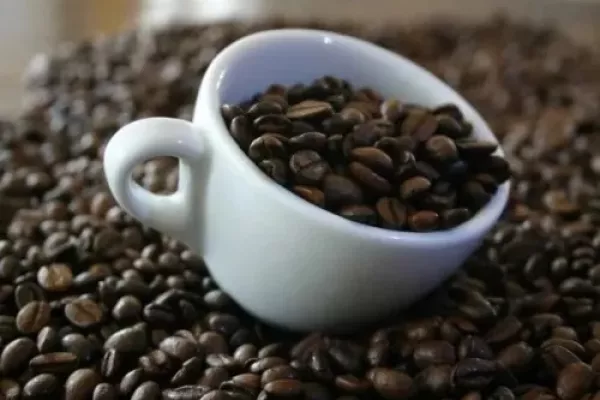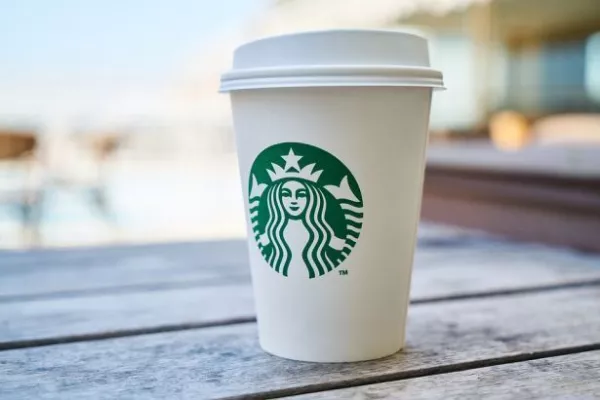Commodity traders are shipping arabica coffee from Europe-based ICE futures exchange warehouses to the United States, five trade sources told Reuters, reflecting the impact of erratic weather on global supply that could raise costs for the popular drink.
The bulk of global arabica coffee, the most commonly used variety, is produced in central and south America so shipping it from one major consuming region to another is highly unusual.
Drawing beans out of ICE exchange stockpiles rather than from private, commercial stocks also means all market participants will see the stock fall - a move likely to push world coffee prices beyond near-10 year highs.
Benchmark ICE arabica coffee futures Kcc2 have been boosted by freak frosts and intense drought in top producer Brazil last year that helped push the global market balance into a forecast deficit of 8.45 million bags for the current season.
The ICE exchange is the world's main coffee futures trading venue and any sign of further erosion of its stocks - already near 20-year lows KC-TOT-TOT - will heighten supply worries.
"I don't ever remember a significant amount of arabica going from Europe to the U.S.," said a Swiss-based coffee trader at a leading global trade house, who has nearly 20 years experience in the sector.
He explained that more than 100,000 60kg bags of arabica previously certified for delivery against ICE futures contracts left exchange-registered warehouses in Antwerp last week for the United States.
Traders expect up to 250,000 more bags of certified coffee - equivalent to about a quarter of the exchange's current 1.01 million bag stockpile - will leave Antwerp for the United States over the next couple of months.
At the same time, very little arabica is likely to be delivered into the exchange, with traders currently reaping significant premiums for fresh coffee on spot markets.
Honduran coffee, a benchmark grade that accounts for just under half of ICE exchange stocks, is currently trading at a record spot premium of 42 cents per lb COF-WARB-HNSDF above an ICE futures price of $2.3 per lb.
The same coffee wouldn't attract any premium if delivered to the exchange.
Given that Honduran exchange stocks are about three years old or more, they are currently trading at a discount of 10-15 cents to the futures price, traders say, making them up to 57 cents or 25% cheaper than spot coffee.
The discount covers shipping costs to the United States as the coffee moved on carriers known as breakbulk, where rates are approximately 50% cheaper than container vessels.
"The question is not about the 100,000 bags coming off (exchange stocks), it's about how much more is going to come off before the market pops," said a veteran coffee analyst at a Europe-based global trade house.
Nearly all ICE arabica stocks are in Antwerp, data shows. If they fall by just another 100,000 bags, that would take them to the lowest since the early 2000s - a move likely to trigger automatic buy signals from black box funds that account for the lion's share of ICE trading volume.
Top producer Brazil is also about to enter winter.
Last year, Brazil's coffee trees were damaged by severe frost, leaving market jitters on the prospect of more given recent erratic weather patterns linked to climate change.
ICE arabica futures have come under pressure recently due to concern that soaring global inflation will hurt economic growth and with it, coffee demand, but traders say prices are not reflecting the supply shortfall.
Premiums for nearly all central and South American coffee grades COF-WARB-HNSDF, COF-WARB-COEDFCOF-WARB-GTDIF, COF-WARB-NISDF are at record levels, making exchange stocks more desirable.
"Exchange stocks are by far the cheapest in the market and premiums are implying the futures are underpriced," said another Swiss-based coffee trader at a global trade house.
SOFTS-Raw Sugar Rebounds, Arabica Coffee Also Climbs
The above news was followed by news that raw sugar futures on ICE rose on Thursday 16 June after finding support around the prior session's one-month low, while arabica coffee prices also climbed on declining exchange stocks.
SUGAR
* July raw sugar SBc1 rose 0.6% at 18.57 cents per lb by 1502 GMT. The front month had dipped to a one-month low of 18.38 cents on Wednesday 15 June.
* Dealers said buying interest picked up around the prior session's low, with the market dipping to 18.39 cents before rebounding strongly.
* The market continued to digest proposed tax changes in Brazil, which would lead mills to use more cane to make sugar rather than biofuel ethanol. However, the exact impact remains unclear.
* Brazil's Lower House on Wednesday 15 June passed a bill creating a ceiling on state taxes levied on fuel and other items, which will now go to President Jair Bolsonaro to sign into law, as part of efforts to tackle high inflation.
* "Analysts are already adding more Brazil sugar to their market balance estimates," Commonwealth Bank of Australia analyst Tobin Gorey said.
* Gorey said, however, the government was also committing to cut taxes on biofuels to help with their competitiveness with fossil fuels so the overall impact of these moves remained unclear.
* August white sugar LSUc1 fell 0.75% to $556.30 a tonne.
COFFEE
* September arabica coffee KCc2 rose 1% to $2.3075 per lb, with the market supported by declining ICE certified arabica stocks and strong differentials in the physical market.
* Commodity traders are shipping arabica coffee from Europe-based ICE futures exchange warehouses to the United States, five trade sources told Reuters, reflecting the impact of erratic weather on global supply that could raise costs for the popular drink. Read full story
* September robusta coffee LRCc2 rose 0.3% to $2,062 a tonne.
COCOA
* September New York cocoa CCc2 rose 0.04% to $2,378 a tonne, hovering above the prior session's 6-1/2 month low of $2,344.
* September London cocoa LCCc2 fell 1.4% to 1,715 pounds per tonne, weighed down partly by a firmer pound. GBP/
SOFTS-Raw Sugar Rebounds, Arabica Coffee Rises As ICE Stocks Fall
All of the above news was followed by news that raw sugar futures on ICE closed up on Thursday 16 June after finding support around the prior session's one-month low, while arabica coffee prices also climbed on declining ICE exchange stocks.
SUGAR
* July raw sugar SBc1 rose 0.12 cent, or 0.7%, at 18.58 cents per lb. The front month had dipped to a one-month low of 18.38 cents on Wednesday 15 June.
* Dealers said buying interest picked up around the prior session's low, with the market dipping to 18.39 cents before rebounding strongly.
* The market continued to digest proposed tax changes in Brazil, which would lead mills to use more cane to make sugar rather than biofuel ethanol. However, the exact impact remains unclear.
* Brazil's Lower House on Wednesday passed a bill creating a ceiling on state taxes levied on fuel and other items, which will now go to President Jair Bolsonaro to sign into law, as part of efforts to tackle high inflation.
* "Analysts are already adding more Brazil sugar to their market balance estimates," Commonwealth Bank of Australia analyst Tobin Gorey said.
* Gorey said, however, that the government was also committing to cut taxes on biofuels to help with their competitiveness with fossil fuels.
* August white sugar LSUc1 fell $2.00, or 0.4%, at $558.80 a tonne.
COFFEE
* September arabica coffee KCc2 rose 3.3 cents, or 1.4%, at $2.318 per lb with the market supported by declining ICE certified arabica stocks and strong differentials in the physical market.
* Commodity traders are shipping arabica coffee from Europe-based ICE futures exchange warehouses to the United States, five trade sources told Reuters, amid reduced global supplies.
* ICE certified stocks fell below 1 million bags for the first time since February on Thursday 16 June, staying just shy of the lowest in 22 years.
* September robusta coffee LRCc2 rose $49, or 2.4%, at $2,104 a tonne.
COCOA
* September New York cocoa CCc2was stable at $2,377 a tonne, hovering above the prior session's 6-1/2 month low of $2,344.
* September London cocoa LCCc2 fell 31 pounds, or 1.8%, to 1,708 pounds per tonne, a three-month low, weighed down partly by a firmer pound.GBP/
News by Reuters, edited by Hospitality Ireland. Click subscribe to sign up for the Hospitality Ireland print edition.









